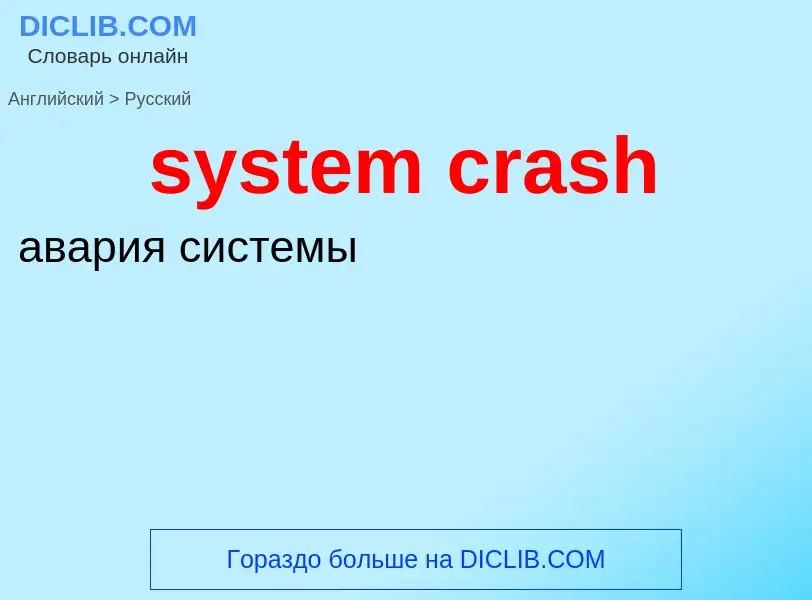Tradução e análise de palavras por inteligência artificial ChatGPT
Nesta página você pode obter uma análise detalhada de uma palavra ou frase, produzida usando a melhor tecnologia de inteligência artificial até o momento:
- como a palavra é usada
- frequência de uso
- é usado com mais frequência na fala oral ou escrita
- opções de tradução de palavras
- exemplos de uso (várias frases com tradução)
- etimologia
system crash - tradução para russo
общая лексика
авария [плавающих] головок
непредусмотренное соприкосновение плавающих магнитных головок с поверхностью жёсткого диска, приводящее к порче данных или отказу накопителя. Зазор между головками чтения/записи и магнитной поверхностью диска измеряется десятками микрон, поэтому аварию может вызвать сильная вибрация, резонансные явления и т.п.
Смотрите также
Wikipédia

In computing, a crash, or system crash, occurs when a computer program such as a software application or an operating system stops functioning properly and exits. On some operating systems or individual applications, a crash reporting service will report the crash and any details relating to it (or give the user the option to do so), usually to the developer(s) of the application. If the program is a critical part of the operating system, the entire system may crash or hang, often resulting in a kernel panic or fatal system error.
Most crashes are the result of a software bug. Typical causes include accessing invalid memory addresses, incorrect address values in the program counter, buffer overflow, overwriting a portion of the affected program code due to an earlier bug, executing invalid machine instructions (an illegal opcode), or triggering an unhandled exception. The original software bug that started this chain of events is typically considered to be the cause of the crash, which is discovered through the process of debugging. The original bug can be far removed from the code that actually triggered the crash.
In early personal computers, attempting to write data to hardware addresses outside the system's main memory could cause hardware damage. Some crashes are exploitable and let a malicious program or hacker execute arbitrary code allowing the replication of viruses or the acquisition of data which would normally be inaccessible.



![A [[Blue Screen of Death]] as displayed in Windows XP, Vista, and 7 A [[Blue Screen of Death]] as displayed in Windows XP, Vista, and 7](https://commons.wikimedia.org/wiki/Special:FilePath/Windows XP BSOD.png?width=200)

